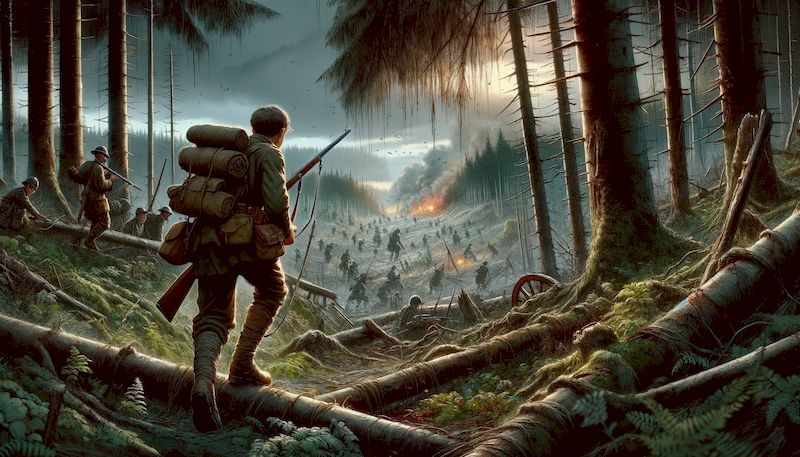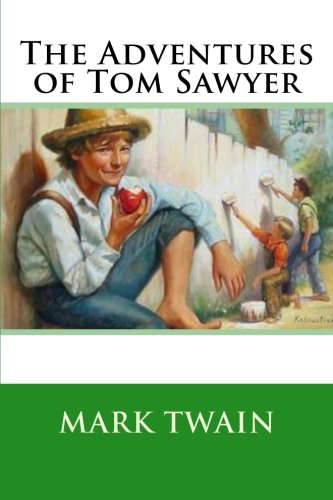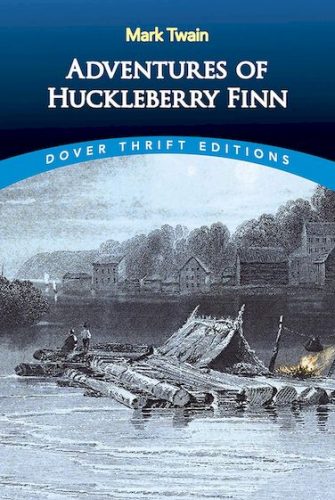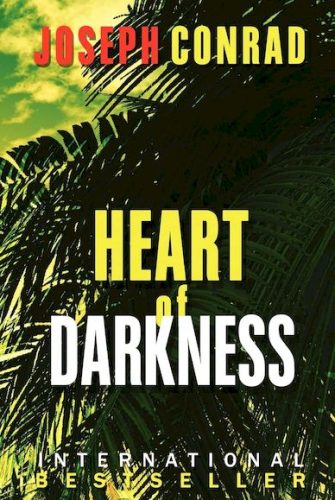In Jack London’s “War,” the narrative focuses on a young scout and his encounter with an enemy soldier, the man with the ginger beard, set against the backdrop of an unnamed conflict. This succinct tale delves into the experiences of war, highlighting the personal cost of conflict.

Main Characters
- The Young Scout: Described as “a young man, not more than twenty-four or five,” the protagonist is characterized by his alertness and the tension he embodies as he navigates through the dangerous terrain on his scouting mission. His role is to gather intelligence and avoid detection by the enemy, a task that London illustrates with vivid descriptions of the scout’s cautious movements and the constant threat he faces.
- The Man with the Ginger Beard: This enemy soldier emerges as a crucial figure in the story’s climax. He is depicted with “a face covered with several weeks’ growth of ginger-colored beard.” His encounter with the young scout by a stream and later, his fatal shot, define the story’s tension and tragic resolution.
Plot Summary
The story unfolds as the young scout moves through a hazardous landscape, constantly on the lookout for enemy soldiers. London paints a picture of the scout’s solitary mission with phrases like “his black eyes roved everywhere” and “so tensely was he strung,” capturing the palpable tension of his journey. The narrative progresses with the scout’s careful navigation through the environment, from the dense brush to the open fields and a deserted farmhouse, each setting detailed with the immediacy of the war’s dangers.
A pivotal moment occurs when the scout, in his quest for water, encounters the man with the ginger beard across a stream. This silent confrontation, marked by a momentary pause in their mutual quest for survival, sets the stage for the story’s dramatic conclusion. London uses this encounter to underscore the arbitrary nature of conflict and the shared vulnerabilities of human beings on opposing sides of a war.
The climax is reached when the young scout, after a brief respite in an orchard near the farmhouse, attempts to return to his own lines. Detected by enemy soldiers, including the man with the ginger beard, he makes a desperate bid for escape. London captures this moment with tension-filled prose, culminating in the man with the ginger beard taking “a long shot” that fatally strikes the scout. The story concludes with the tragic image of the scout’s body on the ground, surrounded by the spilled apples he had collected, a poignant symbol of the life and potential cut short by the senselessness of war.
Conclusion
Jack London’s “War” is a stark, evocative exploration of the individual experiences within the broader canvas of conflict. Through exact wording and vivid imagery, London crafts a narrative that is both a personal tragedy and a commentary on the inhumanity of war. The young scout and the man with the ginger beard embody the universal soldiers, caught in the web of conflicts beyond their control, their brief encounters highlighting the fleeting connections and ultimate separations that define the wartime experience.



